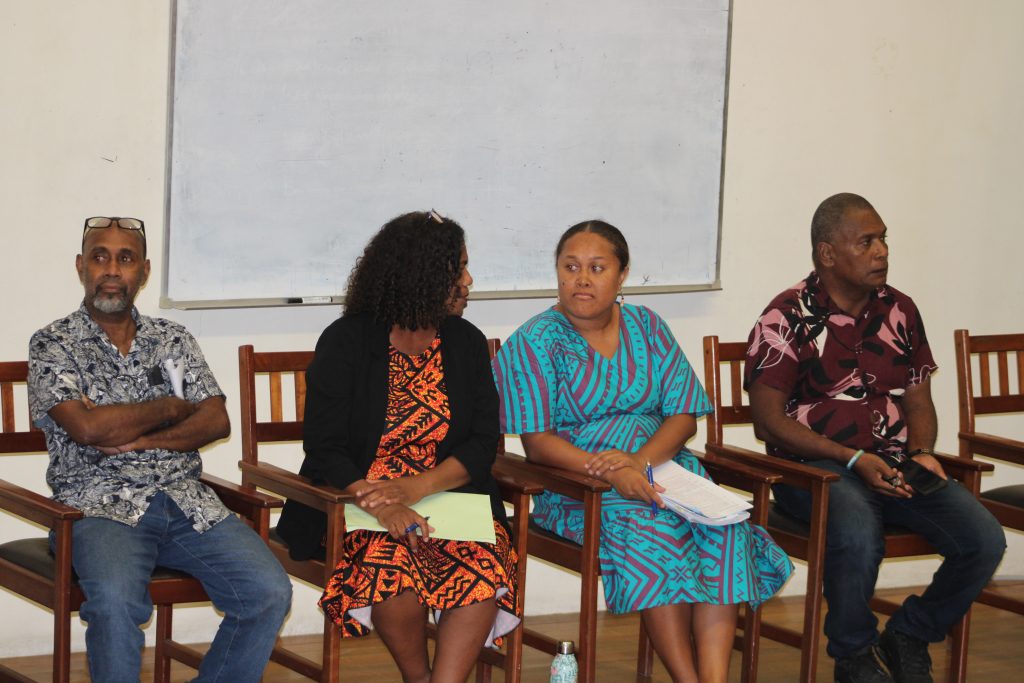𝐏𝐫𝐞𝐬𝐬 𝐑𝐞𝐥𝐞𝐚𝐬𝐞
𝟏𝟎 𝐀𝐩𝐫𝐢𝐥 𝟐𝟎𝟐𝟓

Today, the Solomon Islands National University (SINU) proudly launched the 2024 Solomon Islands Elections Research Report, a landmark study jointly conducted by SINU and the Australian National University (ANU), through its Department of Pacific Affairs.
Described as one of the most comprehensive and methodical studies of electoral processes in Solomon Islands to date, the research draws on data from 5,300 citizen surveys and 570 election observer reports across 15 constituencies. It offers a deep dive into the 2024 national elections and the many forces shaping our democracy.
In his opening remarks, SINU Vice Chancellor welcomed the collaboration as a powerful example of “people-to-people research partnerships” that go beyond institutional ties. He acknowledged the exchange of skills, the building of personal relationships, and the mutual growth of knowledge and capacity that such collaborations bring. In a time of heightened geopolitical competition, he encouraged more cross-border academic cooperation, joint research, and staff mobility between universities in the region.
“The real opportunity,” he noted, “lies not only in the data we’ve collected, but in how we use it to inform future joint research, policy engagement, and publication. We must work towards a Solomon Islands where evidence-based decision-making and data-driven governance are the norm—not the exception.”
The report covers a broad spectrum of critical issues including:
- Voter education and campaign strategies
- Registration, election integrity, and polling day security
- Women’s political participation and persistent barriers
- Constituency Development Funds (CDFs) and their electoral impacts
- Post-election governance, money politics, and voter confidence
These findings, the Vice Chancellor said, must remind us that “elections are not just a one-day event, but part of a longer democratic process.” He also emphasized the risks when citizens are sidelined after elections, saying that “democracy becomes elitist when political participation is restricted to a few, and citizens are reduced to bystanders.”
He closed by thanking the research teams from both ANU and SINU for their commitment and hard work, and left the audience with a powerful reminder from President John F. Kennedy:
“The ignorance of one voter in a democracy impairs the security of all.”
Remarks were also delivered by Sonia Palmieri, Associate Professor at the Australian National University; Lindsay Buckingham, Minister Counsellor at the Australian High Commission; and Jasper Anisi, Chief Electoral Officer and CEO of the Solomon Islands Electoral Commission (SIEC).
The joint research team from the Solomon Islands National University and the Australian National University —Dr Colin Wiltshire, Dr Lincy Pende, Dr Leonora Houma, Ms Vhairi Devi, and Dr John Fasi also presented the key findings of the report during the event. The presentation was followed by a lively question-and-answer session, giving attendees the opportunity to engage directly with the researchers and discuss the report’s findings and implications.
SINU remains committed to producing research that not only informs but empowers—and we look forward to future partnerships that deepen our understanding of Solomon Islands’ democratic journey.
END/////////
You can click to read the Vice-Chancellor’s Opening Remarks below:
Vice-Chancellor’s Opening Remarks – SI 2024 Elections Research Report
